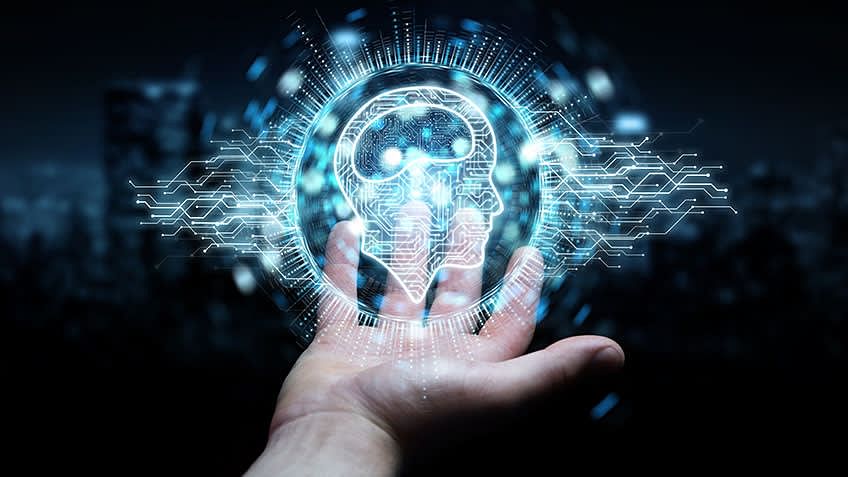The Future of Artificial Intelligence: What You Need to Know
Artificial Intelligence (AI) has been one of the most significant technological breakthroughs of the 21st century. It has revolutionized several industries, including healthcare, transportation, and finance. The potential applications of AI are limitless, and as the technology continues to evolve, it is poised to transform our lives in ways we cannot yet imagine. In this article, we will explore the future of AI, its potential impact on society, and what you need to know to stay ahead of the curve.
The History of AI
AI has a long and fascinating history that dates back to the 1950s. The early pioneers of AI believed that it would be possible to create machines that could think, reason, and learn like humans. However, progress was slow, and it wasn't until the 1990s that AI started to gain traction. Today, AI is everywhere, from voice assistants like Siri and Alexa to self-driving cars and drones.
The Current State of AI
The current state of AI is characterized by rapid progress and widespread adoption. The technology has matured to a point where it can be used in many different applications, from natural language processing and image recognition to predictive analytics and autonomous systems. The use of AI has also become more democratized, with smaller companies and startups able to leverage the technology to gain a competitive edge.
The Future of AI
The future of AI is both exciting and daunting. On the one hand, we can expect to see even more rapid progress and a proliferation of new applications. On the other hand, we must also grapple with the potential social and economic impact of AI, including job displacement, privacy concerns, and the risk of bias and discrimination.
AI and Jobs
One of the most significant concerns about the future of AI is the impact it will have on jobs. While AI has the potential to create new jobs and industries, it is also likely to displace many existing jobs. Some estimates suggest that up to 50% of all jobs could be at risk of automation in the coming years. It is essential that we prepare for this shift by investing in education and training programs that will enable workers to acquire the skills they need to succeed in a rapidly changing job market.
AI and Privacy
Another major concern about the future of AI is the potential impact on privacy. As AI becomes more ubiquitous, it will generate vast amounts of data that could be used for nefarious purposes, such as targeted advertising or identity theft. It is crucial that we develop robust data protection laws and regulations to safeguard our personal information and prevent abuse.
AI and Bias
AI algorithms are only as unbiased as the data they are trained on. If the data contains biases or reflects historical discrimination, those biases will be reflected in the output. This can lead to unfair treatment of certain groups and perpetuate existing inequalities. To mitigate this risk, we must ensure that AI is trained on diverse data sets and that we have mechanisms in place to detect and correct bias.
AI and Ethics
As AI becomes more advanced, it raises a host of ethical concerns. For example, how should we balance the potential benefits of AI against the risk of unintended consequences? How can we ensure that AI is used ethically and responsibly? These are complex questions that will require careful consideration and ongoing dialogue between policymakers, industry leaders, and the public.
AI and Healthcare
AI has enormous potential to transform healthcare, from diagnosis and treatment to drug discovery and personalized medicine. AI algorithms can analyze vast amounts of medical data and identify patterns and correlations that humans might miss. This can lead to earlier and more accurate diagnoses, more effective treatments, and better outcomes for patients.
AI and Transportation
Self-driving cars and trucks are just the beginning of AI's impact on transportation. In the future, we can expect to see AI-enabled traffic management systems, drone deliveries, and even flying cars. These advancements could lead to more efficient and safer transportation systems, but they also raise questions about the impact on jobs and privacy.
AI and Finance
AI is already transforming the finance industry, with applications ranging from fraud detection and risk assessment to algorithmic trading and customer service. In the future, we can expect to see even more sophisticated AI systems that can analyze complex financial data and make predictions about market trends and investment opportunities.
The Role of Government
As AI becomes more pervasive, governments around the world will need to grapple with a range of complex issues, from data privacy and security to job displacement and ethical concerns. It is crucial that policymakers engage in proactive, informed dialogue with industry leaders and the public to ensure that AI is used responsibly and for the benefit of society as a whole.
The Importance of Education and Training
To prepare for the future of AI, it is essential that we invest in education and training programs that will enable workers to acquire the skills they need to succeed in a rapidly changing job market. This includes not just technical skills but also soft skills like creativity, critical thinking, and adaptability.
The Need for Collaboration
The future of AI is too complex and multifaceted for any one organization or individual to tackle alone. It will require collaboration and partnership across different sectors, including industry, academia, government, and civil society. Only by working together can we ensure that AI is developed and used in a way that maximizes its benefits and minimizes its risks.
Conclusion
The future of AI is both exciting and uncertain. As the technology continues to evolve, it will bring both new opportunities and new challenges. It is essential that we approach the development and deployment of AI with caution and care, taking into account the potential social, economic, and ethical implications. By working together and investing in education and training, we can ensure that AI is used for the greater good and benefits society as a whole.
FAQs
1. What is Artificial Intelligence?
2. How is AI used today?
3. What are the potential benefits of AI?
4. What are the risks and challenges associated with AI?
5. How can we ensure that AI is used ethically and responsibly?








